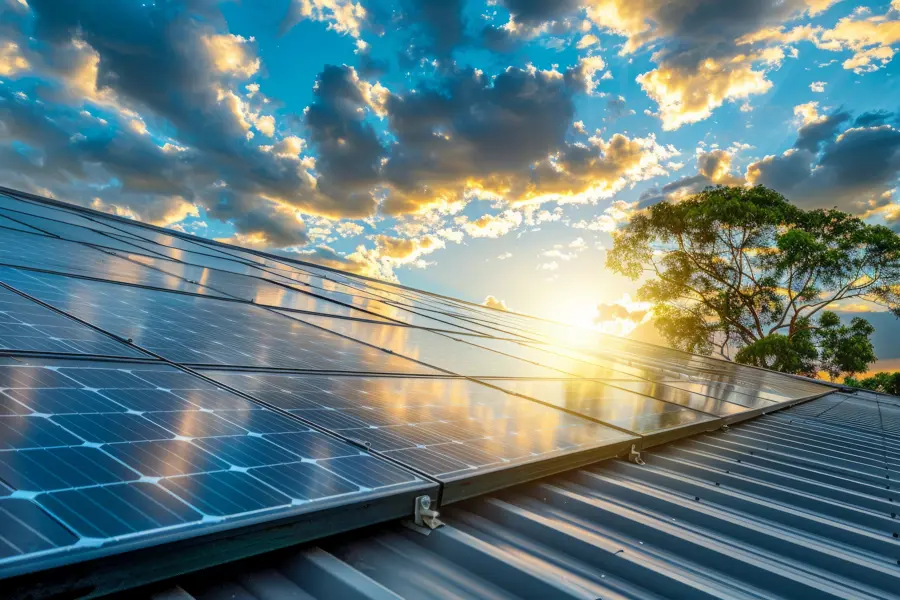Could eco-friendly renovations yield higher returns?
Residential

By continuing, you agree to our terms of use and privacy policy
Instructions on how to reset your password will be sent to the email below.
Your password reset link has been sent. Please check your inbox and follow the instructions provided.
Residential

Eco-friendly renovations involve updating a property using sustainable materials, energy-efficient appliances and environmentally conscious practices. These updates aim to reduce a building's environmental impact while improving its efficiency and footprint.
Homebuyers and renters are now more environmentally conscious. They seek properties that minimize their carbon footprint and offer long-term financial savings through reduced utility bills and maintenance costs. This shift in consumer preferences has driven the demand for eco-friendly homes, making sustainable renovations a smart investment for property owners.
The growing market demand for eco-friendly and power-efficient homes is evident. More consumers prioritize environmentally friendly living spaces offering ecological benefits and long-term cost savings. Examples of eco-conscious renovations that raise property value include:
● Installing solar panels: These panels harness renewable electricity, reducing reliance on traditional sources.
● Upgrading to double-pane windows: They provide better insulation to improve energy efficiency.
● Adding low-flow water fixtures: They reduce water usage and lower utility bills.
● Incorporating smart thermostats: They optimize heating and cooling efficiency to lower energy consumption.
● Using sustainable building materials: Eco-conscious materials like bamboo flooring have less ecological impact and are durable.
● Installing new appliances: Thirty-six percent of appliances in New Zealand homes are over a decade old. Newer appliances generally have less ecological impact, reducing electricity consumption and carbon footprint.
These improvements enhance the property’s appeal and contribute to a healthier, more sustainable environment.
Environmentally friendly features make a property more attractive to buyers and renters by offering climate benefits and long-term cost savings. For example, LED lights last up to 25 times longer than their counterparts and use approximately 75% less energy than incandescent bulbs.
Properties with sustainable elements - such as efficient appliances, solar panels and high-quality insulation — appeal to environmentally conscious consumers who prioritize reducing their carbon footprint. Additionally, eco-friendly structures sell up to 16% more than buildings using traditional construction materials, highlighting their increased market value.
In a competitive market, sustainable homes provide modern, efficient living spaces that lower utility bills and maintenance expenses. This differentiation makes them a preferred choice for those seeking a forward-thinking, responsible investment.
Various government incentives, rebates and tax breaks are available for eco-friendly renovations, making sustainable upgrades more accessible and financially appealing. For instance, tax credits for installing solar panels can reduce the upfront spending. Meanwhile, energy-efficient home improvements like insulation, windows and heating systems often qualify for rebates.
Additionally, grants and low-interest loans support renewable power projects at residential and community levels. Notably, the New Zealand government allocated $28 million to the Community Renewable Energy Fund in 2022 to support community-level renewables. These incentives can offset initial renovation costs, making eco-friendly upgrades more affordable and reducing long-term utility expenses.
Using non-toxic, sustainable materials in renovations offers significant health benefits and makes properties more appealing to buyers and renters. For example, low-VOC paints and finishes help improve indoor air quality by reducing harmful emissions that can cause respiratory issues.
Sustainable materials like bamboo and reclaimed wood are often free from toxic chemicals, creating a healthier living environment. These health benefits increase a property's desirability and value, as modern consumers prioritize wellness and sustainability in their living spaces.
Homeowners must consider eco-friendly renovations a practical investment for higher returns due to the substantial financial savings, increased property value and market demand for sustainable living. By incorporating energy-efficient and non-toxic materials, they can enhance their home’s appeal and contribute to a healthier environment.

About the Author: Evelyn Long is the Editor-in-Chief of Renovated Magazine and a writer passionate about sharing real estate tips with aspiring homeowners around the world. She regularly contributes to sites like the National Association of Realtors and Allioo.
From the top of the North through to the deep South, our salespeople are renowned for providing exceptional service because our clients deserve nothing less.
Managing thousands of rental properties throughout provincial New Zealand, our award-winning team saves you time and money, so you can make the most of yours.
With a team of over 850 strong in more than 88 locations throughout provincial New Zealand, a friendly Property Brokers branch is likely to never be too far from where you are.
